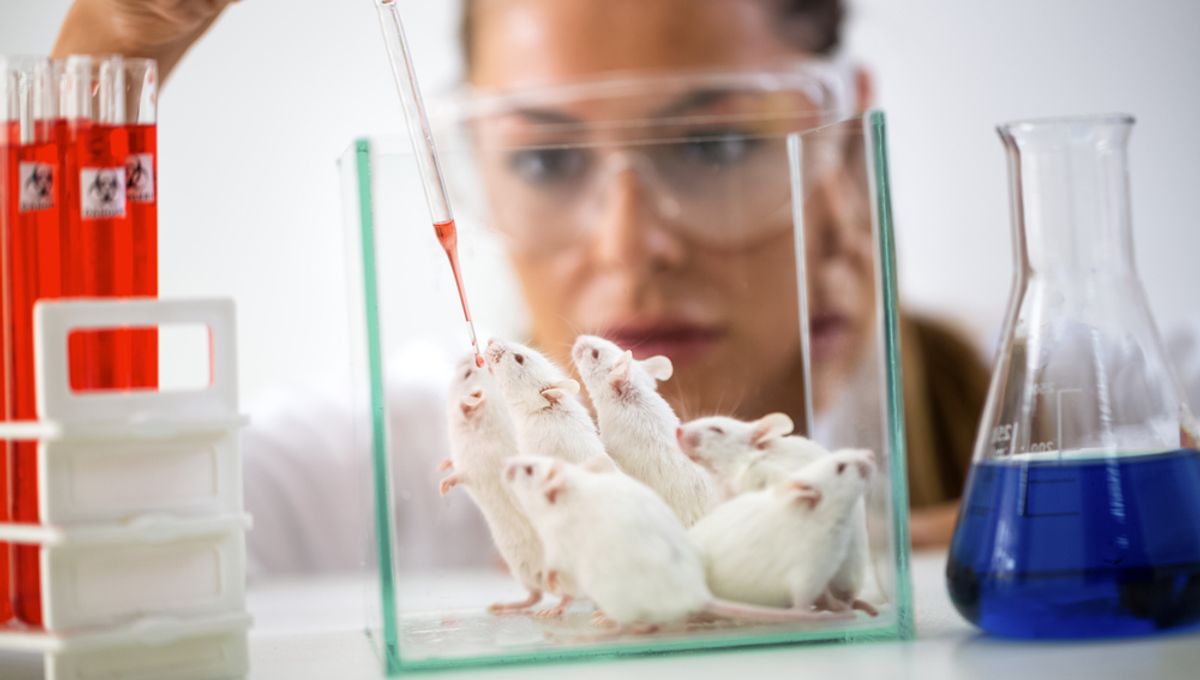
B cell-producing organoids have been used to screen vaccine candidates against tularemia, also known as “rabbit fever”. The work is a step towards replacing animals for vaccine testing prior to clinical trials.
Besides the many bad reasons for vaccine refusal, a few have merit. Most notably, strict vegans may be reluctant to take anything that was tested on animals. Even those who don’t stick so closely to their principles may still be uncomfortable about the suffering involved in animal testing.
A new development involving organoids won’t eliminate the need to test on animals, at least immediately, but could cut the numbers required as well as save money and time.
Organoids are clusters of cells that replicate some of the behavior of real organs. They are grown in the lab and kept alive in conditions that resemble those in the body. Eventually, larger and more sophisticated organoids may replace the need for transplants, but with most of the body’s vital organs, we are still a fair way from that.
In the meantime, however, we can make hundreds of organoids from the spleen of a single animal. A team led by Cornell University’s Professor Matthew DeLisa and Dr Ankur Singh of Georgia Institute Of Technology made organoids from mouse spleens and wrapped them in a hydrogel matrix before injecting each with candidate molecules for a vaccine against tularemia. Live mice were given the same injections.
The trials validated the idea, showing that B cells responses to the molecules were similar in the organoids and the mice, although some differences will need further investigation.
Besides the ethical benefits, the method allows researchers to test large numbers of antigens in parallel relatively cheaply since keeping large numbers of mice in controlled conditions is expensive. The savings could be much larger for trials requiring animals more similar to humans, such as monkeys, when rodent immune responses aren’t helpful. Moreover, since live animals take longer to respond, organoids could speed the process up.
The authors aren’t ready to eliminate animals from vaccine testing entirely. Not only will their work need to be independently verified, but live animals may still be a better guide to possible side effects.
Nevertheless, tularemia represents an example of a disease where many variations on the potential vaccine need to be tried. This is because the Francisella tularensis bacterium evades the immune system using a polysaccharide coating. Vaccines designed against the coating alone have produced weak responses.
The authors instead replicated an approach used for pathogens such as Streptococcus, attaching a piece of the polysaccharide to a carrier protein the immune system is more likely to recognize, such as the tetanus or diphtheria toxins. By introducing them in this paired fashion, the B cells come to see the bacterium itself as a threat, but combinations need to be screened to find a few that justify further investigation.
As organoid technology advances, however, it may become possible to have them replace more and more of the testing currently done on animals. Potentially, organoids made from human cells could also reduce the cases where vaccines work against other species, but fail when used in people.
Besides finding candidate vaccines against rabbit fever and a better method to screen for other tricky diseases, the authors have advanced our knowledge of B cell reactions. In live animals, the B cell response can be difficult to distinguish from that of T cells, but the B cell-only organoids give us a clearer picture.
The study is published in ACS Central Science.
Source Link: Lab-Grown Mini-Organs Could Replace Animals For Vaccine Testing